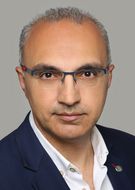-

Yaşar Aydın
The PKK is laying down its arms, after decades of armed struggle. But how secure is the peace process, amidst the region’s geopolitical power struggle. A democratic solution to the Kurdish question remains a distant prospect, argues Yaşar Aydın.
The banned Kurdistan Workers’ Party (PKK) ended its armed struggle against the Turkish state and officially disbanded in May. The next step is its disarmament. PKK fighters in Iraq began the process symbolically on Friday 11 July, burning their weapons in a ceremonial act. Prior to this, PKK leader Abdullah Öcalan reaffirmed his call for peace in a rare video message and explicitly distanced himself from separatist ambitions. This marks an initial success for the peace talks that began in autumn 2024. The conflict has dragged on for nearly half a century and has claimed around 50,000 lives. But is lasting peace a realistic prospect?
Any rational assessment must take into consideration the complex geopolitical landscape in which Turkey operates. Ankara is seeking to secure its influence in Syria, and to play a role in shaping the region’s post-war order. And it rejects federal structures in Syria, fearing they could encourage Kurdish aspirations for autonomy within Turkey.
Fragile alliances and new power dynamics
Erdoğan’s overtures towards the PKK and the Kurds are part of his geopolitical calculus to support Washington’s announced withdrawal from Syria. Tom Barrack, US Ambassador to Ankara and Special Envoy for Syria, recently announced the closure of seven of the eight US bases in Syria. And Washington has fulfilled one of Turkey’s key demands by lifting sanctions on Syria. In return, Erdoğan has significantly softened his rhetoric towards Israel.
Here, Ankara’s interests intersect with Öcalan’s. If Israel gains sway over the Syrian Kurds, Öcalan could lose influence or even fade into irrelevance. The alliance between the Turkish state and the PKK leader is based on power politics and could collapse with any shift in the geopolitical constellation in the Middle East.
Turkey’s influence in Syria remains fragile. Damascus has been making cautious overtures to Israel and is open to the Abraham Accords. Any agreement between Al-Sharaa and Israel would offset Turkey’s dominance in northern Syria and could significantly weaken Ankara’s regional position. This would involve potentially far-reaching consequences – and opportunities – for the Syrian Kurds.
Domestically, Erdoğan has been using the negotiating process to consolidate his power. His central goal is to secure the pro-Kurdish DEM Party’s approval for a constitutional amendment that would allow him to run for a third term. This manoeuvre could once again subvert hopes for a lasting peace.
Much symbolism, few concrete steps
So far, the PKK’s disarmament appears largely symbolic. The process follows no discernible strategy. It is neither internationally monitored, nor accompanied by reintegration programmes or legal guarantees. Will the PKK’s affiliates in Syria and Iran join the disarmament process? And what will happen to the PKK’s weapons? The extent to which the structure of the Turkish state might change also remains unclear. Critics warn of a fragmentation along ethnic and religious lines, which could lead to destabilization.
The conflicting parties’ divergent interpretations of the process highlight the underlying tensions. President Erdoğan frames it primarily as a security issue and presents it as a step toward a “terror-free Turkey” and a historic alliance between Turks, Kurds, and Arabs. Representatives of the Kurdish movement, by contrast, demand a democratic opening, an end to political repression, and restoration of the rule of law.
Tactical détente cannot secure a lasting peace. Institutional reforms, political participation, societal reconciliation, and above all democratic legitimacy are required. These developments are relevant for Germany and should be followed with particular attention. Although Ankara would reject any official mediating role for Berlin, there is a place for German think tanks, political foundations, and civil society actors to pursue track two diplomacy. Informal dialogue could contribute to clarifying the perspectives and expectations of the conflicting parties and thus help build trust.
Dr Yaşar Aydın is a researcher at SWP’s Centre for Applied Turkish Studies (CATS).